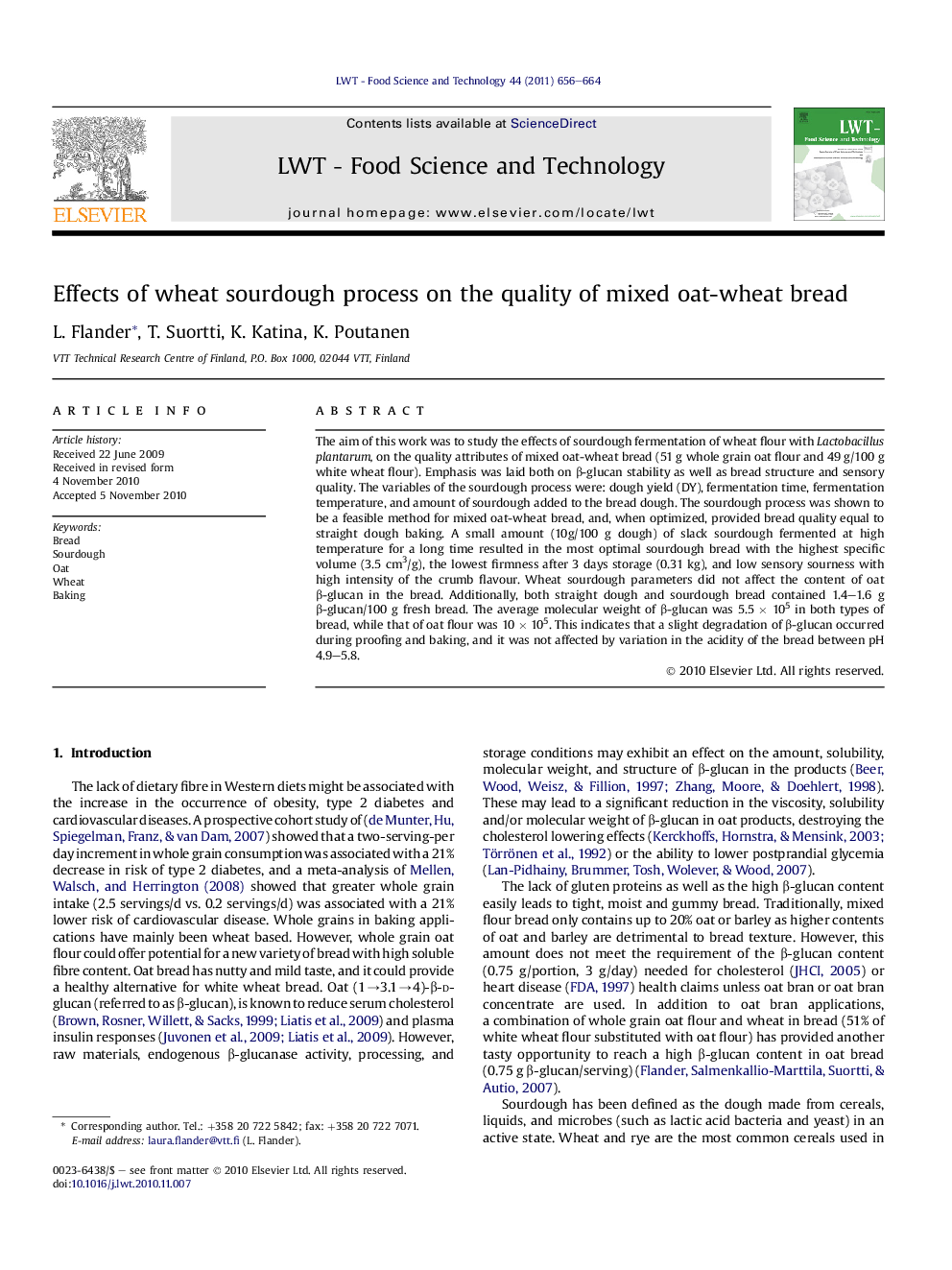| کد مقاله | کد نشریه | سال انتشار | مقاله انگلیسی | نسخه تمام متن |
|---|---|---|---|---|
| 4564075 | 1330922 | 2011 | 9 صفحه PDF | دانلود رایگان |

The aim of this work was to study the effects of sourdough fermentation of wheat flour with Lactobacillus plantarum, on the quality attributes of mixed oat-wheat bread (51 g whole grain oat flour and 49 g/100 g white wheat flour). Emphasis was laid both on β-glucan stability as well as bread structure and sensory quality. The variables of the sourdough process were: dough yield (DY), fermentation time, fermentation temperature, and amount of sourdough added to the bread dough. The sourdough process was shown to be a feasible method for mixed oat-wheat bread, and, when optimized, provided bread quality equal to straight dough baking. A small amount (10g/100 g dough) of slack sourdough fermented at high temperature for a long time resulted in the most optimal sourdough bread with the highest specific volume (3.5 cm3/g), the lowest firmness after 3 days storage (0.31 kg), and low sensory sourness with high intensity of the crumb flavour. Wheat sourdough parameters did not affect the content of oat β-glucan in the bread. Additionally, both straight dough and sourdough bread contained 1.4–1.6 g β-glucan/100 g fresh bread. The average molecular weight of β-glucan was 5.5 × 105 in both types of bread, while that of oat flour was 10 × 105. This indicates that a slight degradation of β-glucan occurred during proofing and baking, and it was not affected by variation in the acidity of the bread between pH 4.9–5.8.
Journal: LWT - Food Science and Technology - Volume 44, Issue 3, April 2011, Pages 656–664